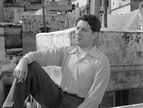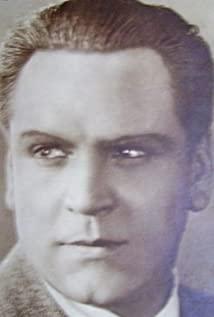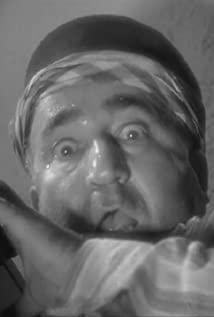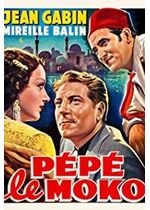-
Tamara 2023-05-06 02:44:50
Regarding the instinctive desire to escape and the inevitable fate of imprisonment, the last knife stabbed Bei Bei's tragic color; the representative work of "poetic realism" is full of...
-
Morgan 2023-04-24 02:16:33
I love Gaben so much, and entertaining my younger brother to watch this movie is high-end...
-
Crawford 2023-03-27 12:36:07
The scene is well selected, and the composition function comes with it. Typical poetic realism, with lyricism and...
-
Peggie 2023-03-11 14:42:01
The character seems to have directly become the jade-faced flower thief that women love, but he is rude and caressing, maybe just a little brotherly loyalty... I don't see Beibei's charisma of recruiting a bunch of brothers and women to work for him. However, the film's later poetic portrayal of his life pursuit is indeed meaningful. The love crisis between the two is very similar to the tragedy of Juliet and Romeo. Beibei himself also interprets the values of love and freedom over...
-
Santino 2023-03-10 09:08:28
The ending is good, this city is...
-
Mikel 2023-03-07 08:52:42
Poetic realism interior and exterior scenes combined with the scenes of the slums in the south of France to reproduce the environmental dilemma, typically expressing a desperate pessimism...
-
Pearlie 2023-02-11 02:09:20
French poetry from 1934 to 1939. The black period of...
-
Dariana 2023-02-08 04:29:11
JG embroidered on Pépé's shirt, Jean...
-
Nathaniel 2023-02-06 23:17:34
Unable to get rid of the fate, Cass Bar is both his umbrella and his prison, and only death can be...
-
Spencer 2023-02-02 05:10:21
[Exhibition at China Film Archive] The prototype of "Casablanca". Although it is a 1937 movie, the language of the cinematic lens is so mature and rich that it is still shining even after 80 years. Beibei's unrestrained impulse, lover's deep misery, policeman's sleek and cunning... the image of each character is so vivid and unforgettable. Algiers is indeed one of the most story-telling cities in North Africa. Four and a half...
Pépé le Moko Comments
-
Joey 2022-06-08 16:51:47
Pull film plot
Fugitive Beibei: 3:08-4:41 Police Station 4:41-6:40 Small Town Environment 6:40-8:05 Police Station 8:05-10:05 Small Town Beibei Hideout 10:05-10 :12 The police came to the town 10:12-11:02 The police + the gray industrial people in the town cross-edited 11:02-12:19 Regis got information from...
-
Bernhard 2022-06-08 23:29:05
Run away babe
The film noir exhibition recommended by Peter. I didn't feel much when I saw it, but after a guest explanation (the teacher I met in school), I realized that there are other things that can be interpreted. For example, ordinary noirs are ordinary people who turn into criminals, and most of them...
-
Pépé le Moko: What did you do before?
Gaby Gould: Before what?
Pépé le Moko: Before the diamonds.
Gaby Gould: I dreamed of them.
-
Pépé le Moko: You smell so good.
Gaby Gould: It's the Métro.
Pépé le Moko: In first-class.











